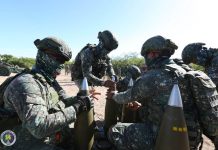
THE RECENT launch of Iloilo’s School-Based Immunization (SBI) Program once again reminds us that public health success depends not only on the availability of vaccines but also on the willingness of families to embrace them. While the Iloilo Provincial Government, the Department of Health, and the Department of Education (DepEd) have demonstrated unity in protecting learners from life-threatening but preventable diseases, the lingering shadow of vaccine hesitancy remains a challenge that cannot be ignored.
In Bingawan town where the campaign was officially kicked off, 182 Grade 7 students received their measles-rubella and tetanus-diphtheria shots. Parents showed up, teachers gave their full support, and health workers ensured the quality and safety of the process. This show of trust and collaboration is heartening. Yet, it cannot be denied that in some communities, misinformation and fear still cast doubts on immunization programs. The painful lessons of the Dengvaxia controversy still linger, exploited by anti-vaccine groups, and reinforced by the flood of unverified claims on social media.
Public trust, therefore, must be nurtured with transparency and sustained engagement. Parents must be assured that vaccines are safe, necessary, and effective. This means government health officials should not only roll out immunization schedules but also hold community dialogues, answer tough questions, and be forthright about possible side effects. The public will trust when leaders and health professionals speak with honesty, consistency, and respect for parental concerns.
At the same time, teachers and schools — as trusted institutions — should continue to play a frontline role in building confidence. In Iloilo, the visible partnership between DepEd, local government units, and the Provincial Health Office is a model of how collaboration strengthens credibility. When learners see their teachers, local officials, and doctors working hand in hand, they see not bureaucracy but a united front for their welfare.
Equally important is the role of local leaders in setting the tone for their communities. When governors, mayors, and barangay officials themselves actively endorse and even participate in immunization drives, they send a clear message: this is safe, this is necessary, and this is for the good of all. Leadership by example is perhaps the most powerful antidote to hesitation and doubt.
Immunization is an act of faith in science, governance, and the community. Iloilo has taken an important step, but to sustain momentum, vaccination must be framed not as an imposition but as a shared responsibility. Only then can we overcome hesitancy, protect our children, and ensure that preventable diseases do not steal away lives and learning opportunities.







